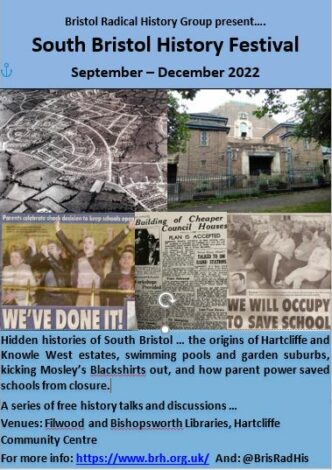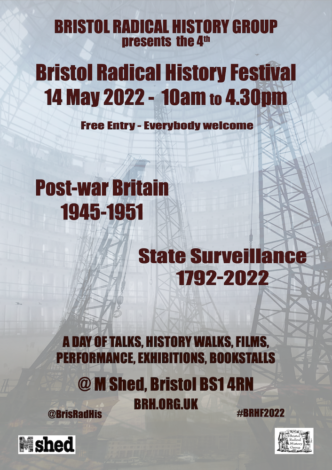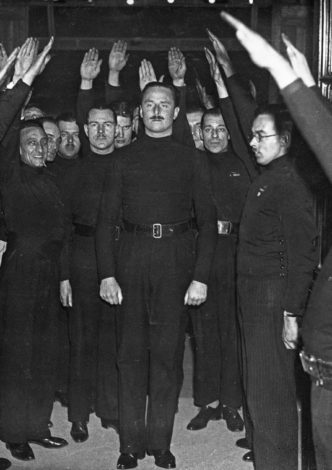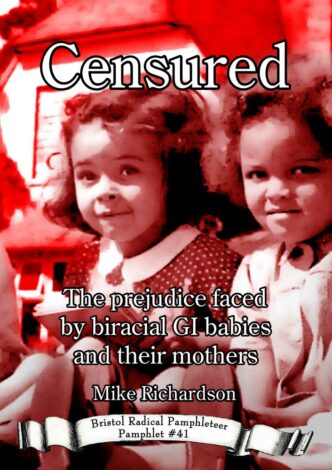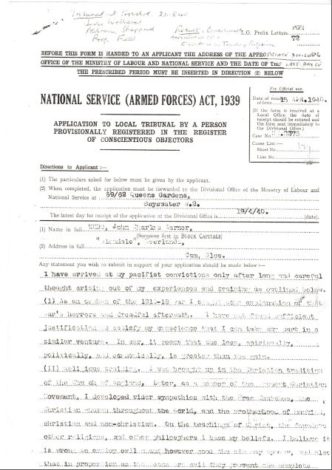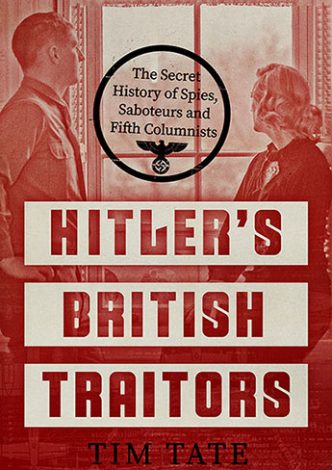7.00pm, Tuesday 29th November, Filwood Library, Filwood Broadway, Bristol BS4 1JN During the 1930’s militant antifascism against Oswald Mosley’s Blackshirts was ingrained and established amongst the Bristolian working-class. Discontented by their many defeats in the inner-city, industrial working-class districts of Bristol the British Union of Fascists (BUF) turned their attention to the new garden suburbs springing up on the outskirts of the city. Unfortunately for the BUF, working-class […]
The arrival of the Empire Windrush, which docked in Tilbury in June 1948, bringing 492 migrants from Jamaica, Trinidad and Tobago and other islands was part of the large scale migration of British Commonwealth citizens from the Caribbean that lasted until the 1962 Commonwealth Immigration Act instituted racist controls on their entry to the UK. The Empire Windrush and the 'Windrush generation', as they have been labelled, particularly since the scandal exposed in 2018, are now becoming part of […]
The Second World War in Europe is often presented as a war against fascism though this is conflated with a war against the nations of Germany and Italy and by default with Germans and Italians. The VE day celebrations today will be presented as those of a nation united against the Nazis. However, numerous anti-fascist Germans or Italians were interned in poor conditions in the UK whilst the British fascist leader Oswald Mosley, although interned, was better treated and released early. Upon the […]
Roger Ball will outline how during the Second World War the government introduced compulsory ID cards as part of their emergency measures. It was not until seven years after the War that ID cards were finally withdrawn. Clarence Willcock, a Liberal activist, was instrumental in this process; his refusal to show his ID card when stopped by the police in North London in 1950 raised questions about their use in peacetime Britain, led to a campaign and contributed to the withdrawal of the cards in […]
During the summer of 1946, thousands of British families took the law into their own hands to temporarily solve their housing problems by "requisitioning" empty military camps. This mass-squatting movement was rapid, spontaneous and entirely working-class in character. While it was often driven at ground level by women, the movement soon developed a formal leadership structure dominated by ex-servicemen who had served as NCOs and warrant officers. Bristol, with particularly acute housing […]
Mike Richardson’s intriguing account of his aunt, Beatrice Richardson and her biracial daughter Gillian, brings into stark relief the racism and sexism that existed in Britain during and after the Second World War. Sexual relationships between white British women and black American soldiers were regarded with disapproval both in the governing establishment and among many ordinary people. The women, the men and their children faced innumerable obstacles. Censured reveals the extent to which the […]
Foreword During the Second World War, over 60,000 men and 1,000 women applied to register as conscientious objectors (COs) in England, Wales and Scotland. Although this was at least three times as many as in the First World War; it has remained something of an under reported history. The experience of First World War and Second World War COs vary in a number of ways. Sympathetically framed legislation and the fact that the tribunals came under the auspices of the Ministry of Labour rather than […]
 Not A BRHG Event
Not A BRHG Event
As part of the Lunchtime Lecture series organised by Bristol Libraries visual artist Jude Hutchen will present the ideas behind her current exhibition at the Central Library: ‘A Colour Chart for Killing – the legacy of World War One ‘the war to end all wars’, part of the ‘Commemoration, Conflict and Conscience’ festival program. Imagery from the housing market and home decorating is plundered to provoke questions about personal responsibility for mass violence, through connecting our quality of […]
Regardless of the 2015 publishing date given, this book is currently (last checked December 2018) just available in hardback, and must have been withheld due to the ongoing release of new official documents, as these terminated only in 2017. 'Hitler's British Traitors' covers a subject that was largely considered either taboo or dismissed with contempt until recently, namely the idea that if Nazi Germany had managed to invade Britain, particularly when they had a potential capability to do so in […]
 Not A BRHG Event
Not A BRHG Event
Quaker Meeting House, 126 Hampton Road, Redland, Bristol BS6 6JE A free event on women and conscientious objection to military service. Note: Registration is required for this event, details here. Speakers will include:- Professor Lois Bibbings, University of Bristol, author of Telling Tales About Men: Conceptions of Conscientious Objectors to Military Service During the First World War (Manchester: Manchester University Press, 2009) will look at how World War 1 Conscientious Objectors were […]
